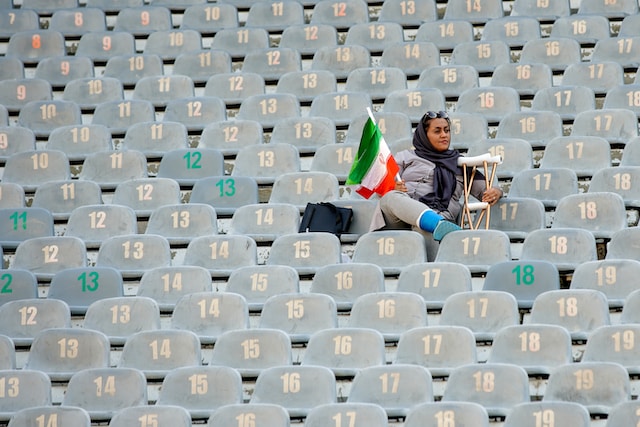And now for the Saudi-Iran football wars: Persepolis vs Al Nassr
Is this amicable competitiveness part of Riyadh's return on investment in football superstars?

There are several reasons to take careful note of one particular football match in one particular Middle Eastern capital.
The venue is Tehran’s gigantic Azadi stadium, which can comfortably accommodate some 90,000 people.
Persepolis, one of Iran and the region’s most successful clubs, plays Al Nassr from Saudi Arabia.
It’s the first Saudi-Iran game since the two countries resumed diplomatic relations after seven years of simmering hostility.
Iranian football fans are cheering the Saudi club’s star player Cristiano Ronaldo though none of them will be in the stadium to watch the game, as a previous controversial action by Persepolis drew an Asian Football Confederation ruling it be played behind closed doors.
Even so, most important of all, the match demonstrates the outbreak of friendly sporting rivalry between Sunni-majority Saudi Arabia and Shia-majority Iran.
Rather than the dangerous balefulness of the past decade, Iran and Saudi Arabia seem keen to talk to each other, play with each other, and presumably, occasionally even like each other. This is not to say the era of outright hostility is over, but there has been a rather remarkable lowering of tensions in the region ever since a China-brokered deal between Tehran and Riyadh was announced in March.
Is this amicable competitiveness on the football pitch part of the return on investment by Saudi Arabia in the game’s superstars? When critics lament “sportswashing” by the region’s absolute monarchies – Saudi having merely followed in the wake of Qatar and the UAE – it’s worth remembering the Persepolis-Al Nassr match and the example it set: a willingness to play on each other’s soil; to accept a win or loss in the spirit of the game; to engage in cross-border dialogue at many levels, not least in people’s hearts.
If it sounds strange that at least some of this will be achieved because of a 38-year-old Portuguese sportsman, so be it.
Sport has a strange power – to join peoples and to bring about positive change.
Consider the impact of the sports boycott of apartheid South Africa. The ban on its participation in the Olympics between 1964 and 1992 and the severe restrictions on international rugby union and cricket matches created, what political scientists later said, was a unique pressure for change.
Not every sports boycott works but the fact that this one did, suggests the opposite too can build momentum for change. That increased sports engagement between long-time rivals can moderate political behaviours, rhetoric and reflexive policy-making.
This may be a lot to extrapolate from one match in Tehran, but it’s worth thinking about.
Also read:

